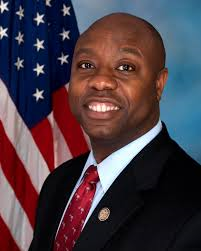Some parents living on U.S. military bases could use special military scholarships to send their kids to a public or private school other than the one they are assigned to, under a bill recently filed by U.S. Sen. Tim Scott, R-S.C.

The scholarship program would start as a 5-year, $10 million pilot on at least five military installations. Families living on bases without on-site, U.S. Department of Defense schools serving their children would be eligible for up to $12,000 a year to pay tuition and/or transportation costs.
The idea is to ensure soldiers and their families, who usually have less freedom than others to pick their children’s schools, have access to a high quality education, Scott said in a prepared statement.
Scott’s bill, filed last month, dovetails with a couple of school choice trends.
It’s one of several federal school choice proposals now in the hopper, including a bill filed last year by U.S. Sen. Marco Rubio, R-Fla., that would create a federal tax credit scholarship. It’s also part of a swirl of initiatives putting a spotlight on the educational needs of military families.
The Department of Defense is looking to close some of its military-run schools to decrease costs and is considering the possibility of more charter schools. Meanwhile, MacDill Air Force Base in Tampa, Fla. – home to U.S. Central Command – is locked in a struggle with the Hillsborough County School District over whether it can have a charter school. In response to the district’s resistance, a key lawmaker has said the Florida Legislature will consider creating an expedited application process for on-base charter schools serving military families.
Scott’s proposal for military scholarships is part of his CHOICE Act, which stands for Creating Hope and Opportunities for Individuals and Communities Through Education. The act also would expand the Opportunity Scholarships voucher program in Washington, D.C. and allow special education dollars to follow children to the school of their choice. So far, there are six sponsors, among them, not surprisingly, U.S. Sen. Lamar Alexander, R-Tenn., long a proponent of education funding portability.

Alexander, the ranking member of the Senate Health, Education, Labor and Pensions Committee, also introduced legislation last month to expand school choice by combining almost every federal program authorized under the Elementary and Secondary Education Act into a $24 billion funding stream. As Education Week reported, states could allocate those dollars directly to low-income parents, who could use the money to help pay for private school, supplement their traditional public or charter school’s budget, or cover tutoring or homeschooling expenses.
The Scholarships for Kids Act would let states create scholarships worth $2,100 for 11 million low-income students.



[…] Read the source article at redefinedonline.org […]
[…] Read the source article at RedefinED Online […]